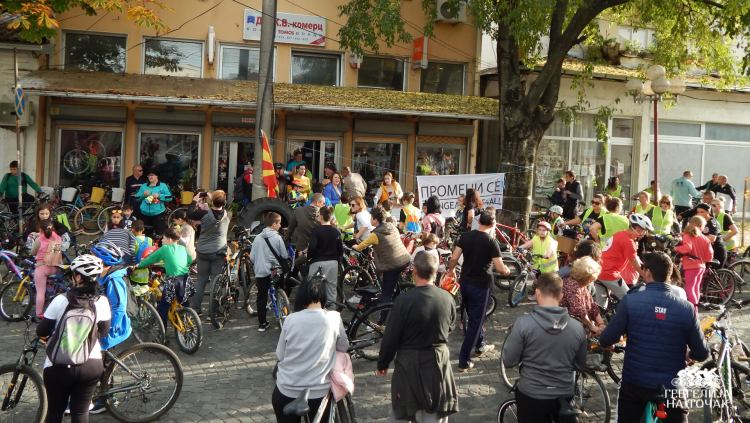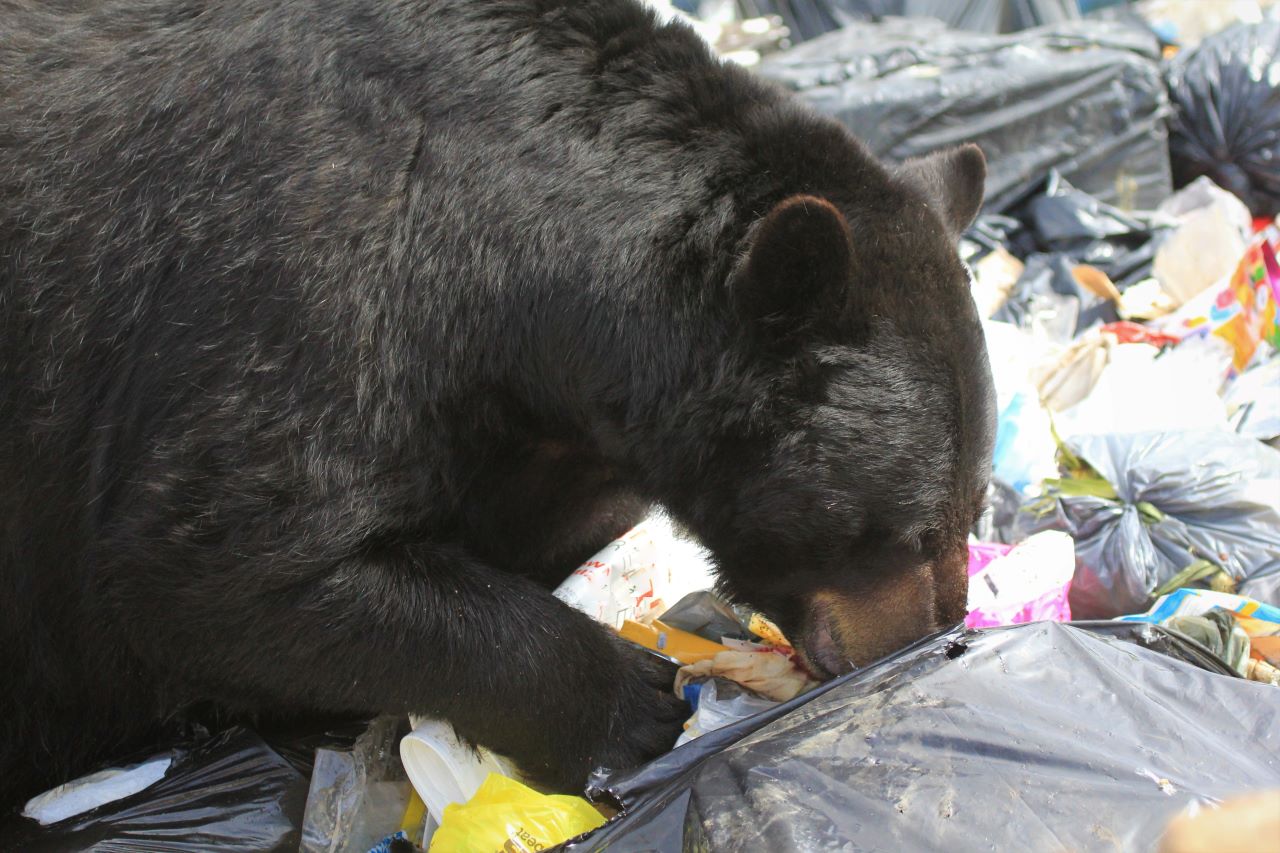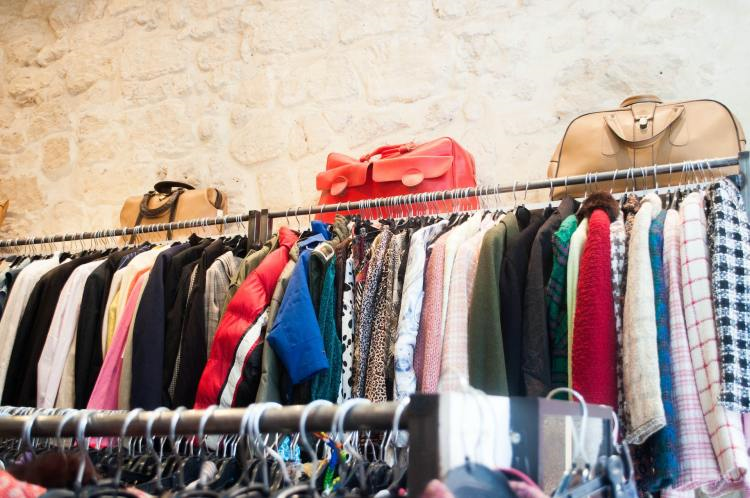Sometimes the air pollution is worse indoors, than outdoors, says in the interview for UNDP, Professor Dejan Mirakovski, rector of the University Goce Delchev and head of the laboratory Ambicon.
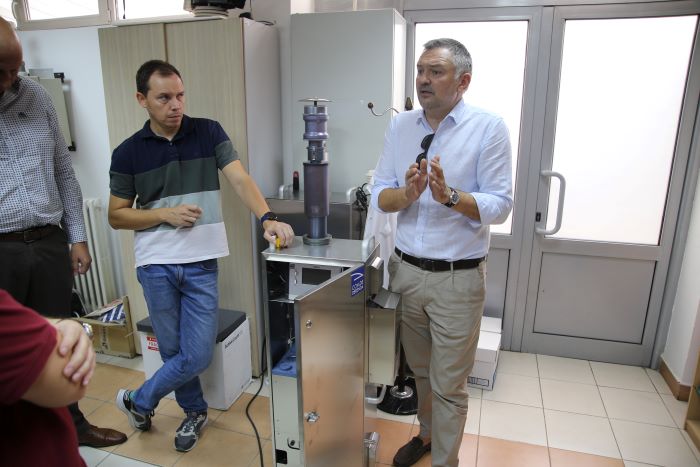
Channeling the moto of this year’s marking of the World Clean Air Day, together for clean air, he adds that dealing with the threat of the air pollution will require coordinated action from all sides, over an extended period of time.
We spoke with him for the occasion of the International Day of Clean Air for Blue Skies to highlight the increased focus on improving air quality.
Based upon the results of the project „Tackling the air pollution in the city of Skopje“, with the continuous help from the government of Sweden, UNDP is expending its efforts with a new project in five municipalities which also have serious problems with air pollution (Kavadarci, Kumanovo, Struga, Strumica and Gostivar). The team of experts from the Ambicon laboratory will play crucial role in the measurements of the air pollution in each of the municipalities.
Professor Dejan Mirakovski, believes that even though the high levels of air pollution are a serious issue for the people living in the bigger cities in the country, the number of relevant scientific studies conducted in this field is relatively small.
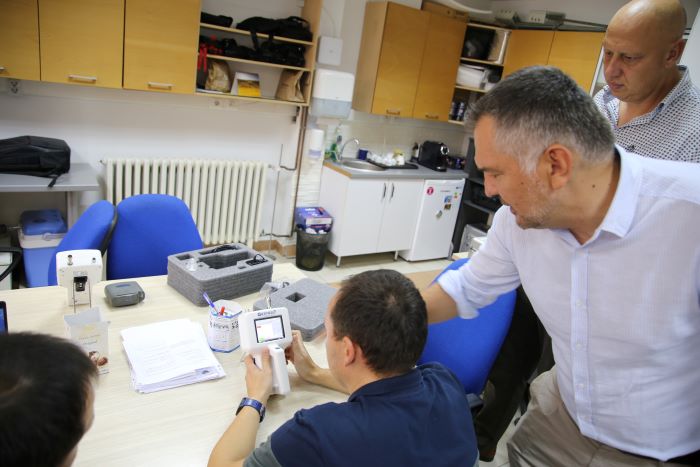
„Precisely the small amount of scientifically backed data, which are sadly limited both in scope and duration, often leaves a large space for frivolous interpretations and empty discussions, which instead of leading to solutions for the problems, tends to prevent all the efforts for implementing appropriate strategies, which will lead to reduction of air pollution. I strongly believe that the increased amount of research will enable us to better understand the problems. “– says Prof. Mirakovski.
The measurements are complex and will take time. Because of the different intensities of the sources of pollution and different conditions of dispersion of the pollutants over different seasons – it will take at least a year.
The first step is the sampling of the air, which will be done with the use of the so-called „referential “systems, with strictly defined rules.
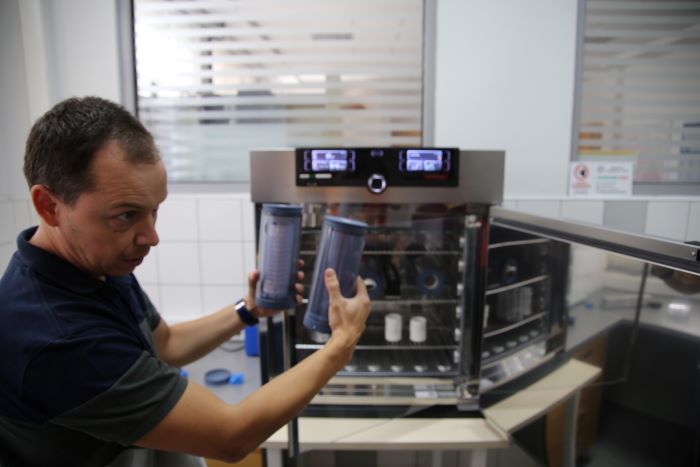
The next important step is the specification of the chemical composition of the particles, which are „caught“ on the filters and lastly with the help of advanced mathematical tools, the final phase of the research will give the answer to the most important question: which are the predominant pollutants in each of the municipalities? The answer to this question is crucial in dealing with air pollution – since it will indicate what type of measures need to be implemented by the authorities.
What differentiates the research which will be done by the experts from Ambicon laboratory from the previous ones are the measurements of indoor pollution.
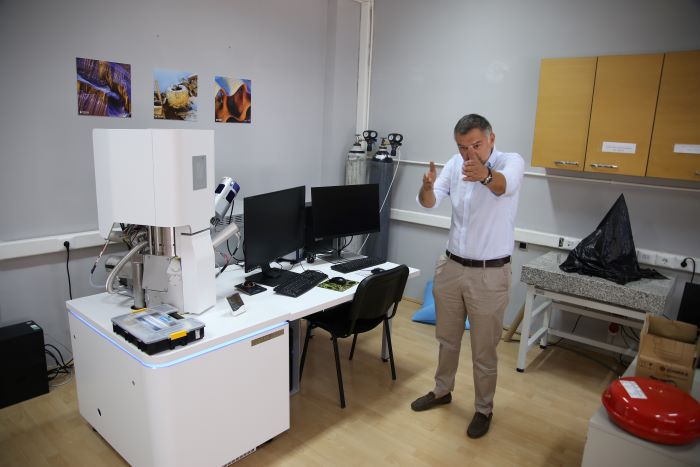
Two schools or kindergartens from each municipality will be part of this important research, explains Prof. Mirakovski.
„Depending upon the types of air pollution and the activities which take place indoor, as well as the type of buildings, the air indoors, very often can be even much more polluted then the air outdoors, which in turn can have much more negative impact on the health of the exposed persons, since on average, people spend much more time in closed spaces“ – warns Prof. Mirakovski.
He explains that these measurements will be done in accordance with the recommendations of the WHO and will include analysis of the concentration of the suspended particles, bioaerosols and pollutants such as CO2, CO, the volatile organic compounds (VOC’s) -chemicals that are found in many products we use to build and maintain our homes, different types of flooring, furniture – and formaldehyde.
These measurements, according to professor Mirakovski, will be done over a period of at least a week in each school and will be conducted prior, during and after classes (from Monday till Friday, from the beggining till the end of a school day).
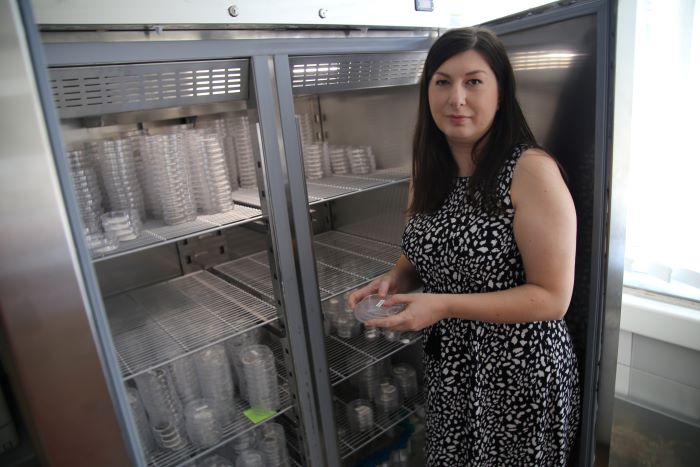
University „Goce Delchev“ from Shtip has one of the best equipped laboratories, on a national and even regional level, which is comparable even to the most advanced European laboratories, states Prof. Mirakovski, adding that its capacity is further enhanced with the donations received from the project „Scaling up actions to tackle air pollution“, funded by Sweden.
„The addition of the highly sophisticated X-ray fluorescence spectrometer (XRF) and the modern fully automated (sequencing) systems for sampling particles and analysis of the suspended hard particles in the air, are of essential importance and present the core of the further development of our laboratory“ -says Prof. Mirakovski.
There is light at the end of the tunnel or more fittingly put – a breath of fresh air in the gloom story of air pollution in North Macedonia, remarks Prof. Mirakovski.
Almost all of the countries, which now top the list of countries with the best air quality, as Sweden does, have once faced similar or even worse problems with polluted air, but now those problems are only a distant memory.
„The solutions, without exception, were result of specific and targeted measures, based on accurate data and scientifically supported analysis of the problem. I’m certain that if we follow this approach, we’ll be able to overcome these problems and in the near future live in cities, where the problem of polluted air will be a thing of the past“– concludes Professor Mirakovski.
[1] The project “Tackling Air Pollution” is part of the UNDP Program Framework, financed by Sweden. The project is implemented by the United Nations Development Program (UNDP) in partnership with the Ministry of Environment and Spatial Planning and the municipalities of Kavadarci, Kumanovo, Gostivar, Struga and Strumica.
